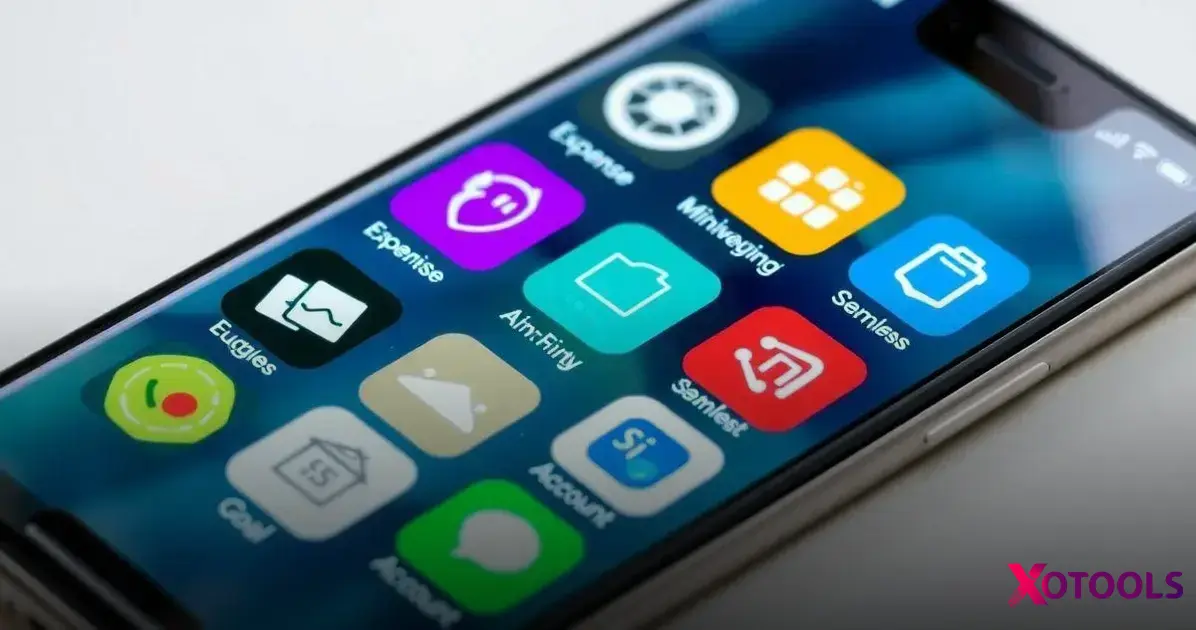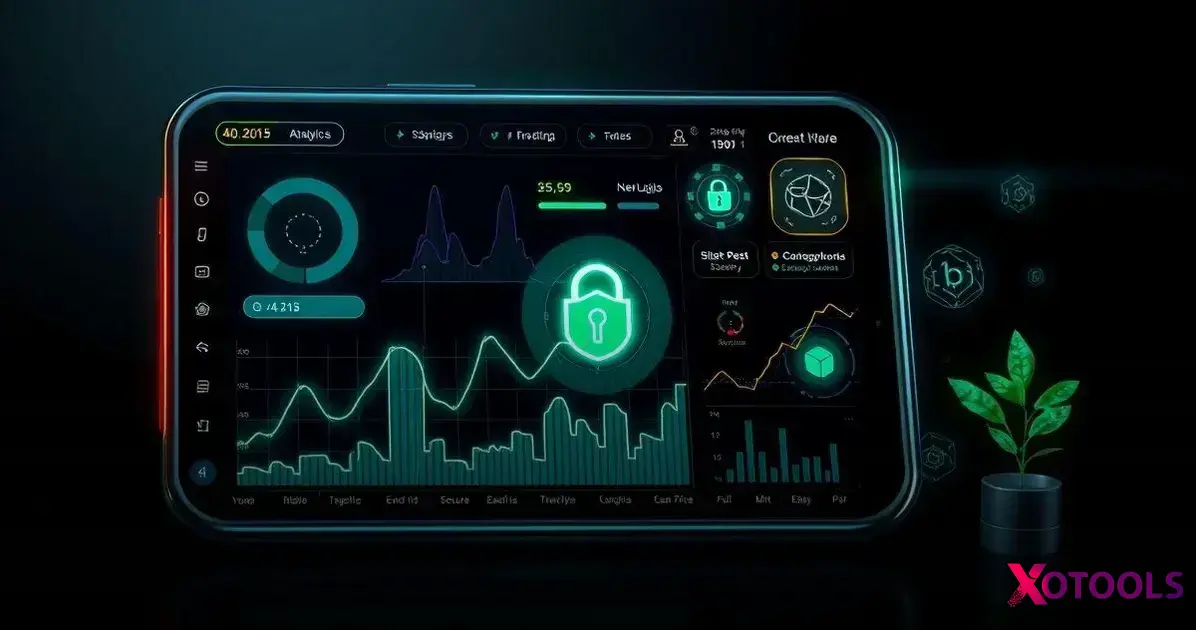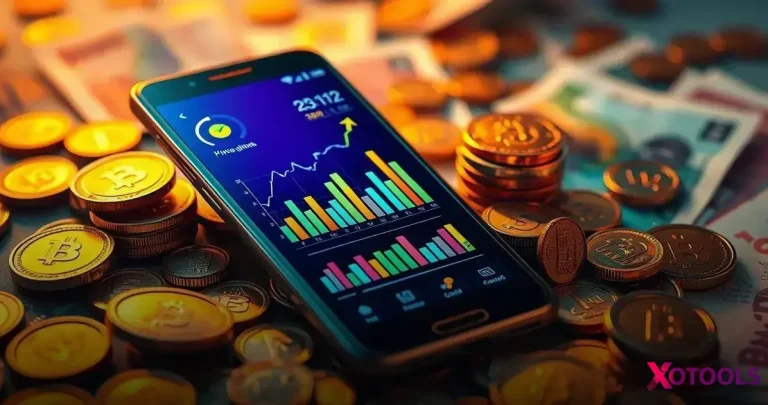ADVERTISEMENT
Money Management Apps are changing the way people handle their finances. They make it simple to track spending, plan budgets, and stay on top of financial goals with just a few taps.
With features like spending trackers, savings goals, and real-time bank updates, these apps give you a clear picture of your money. They help prevent overspending and encourage smarter financial habits effortlessly.
Whether you’re a student or a professional, using these apps can boost your financial confidence. Keep reading to discover how the right money management tools can transform your financial life.
What Are Money Management Apps?
Money management apps are tools that help people keep track of their finances. They make it easier to see how much money you have, what you spend it on, and how to save more. With just a few taps on your phone, you can have a clear picture of your financial health.
These apps often include features like budgeting tools, spending trackers, and savings goals. Many can connect directly to your bank accounts, allowing you to monitor your transactions in real time. This helps you avoid overspending and encourages better financial habits.
Money management apps are useful for everyone, from students to working professionals. They empower you to take control of your money and make informed decisions. By using these apps, you can transform your financial life today.
Benefits of Using Money Management Apps
One major benefit of using money management apps is their ability to help you budget effectively. These apps let you set limits for different spending categories, such as groceries or entertainment. By sticking to your budget, you can avoid overspending and start saving more money for the future.
Another great advantage is tracking your expenses in real time. With money management apps, you can see where your money goes at any moment. This quick access to information helps you make informed choices about your spending and identify areas where you can cut back.
Finally, money management apps often offer helpful tips and reminders. They can alert you when bills are due or suggest ways to save based on your spending habits. These features empower you to take control of your finances and reach your financial goals faster.
Top Features to Look For in Apps

When choosing a money management app, look for a user-friendly design. A clear and attractive interface makes it easier for you to track your money without feeling overwhelmed. Simple navigation allows you to find features quickly and use the app effectively every day.
Another important feature is the ability to link multiple bank accounts and credit cards. By doing this, you can see all your finances in one place. This feature streamlines your financial tracking and helps you understand your total financial picture at a glance.
Lastly, consider apps that offer goal-setting tools. These can help you plan for big expenses, like a vacation or a new car. Setting specific savings goals can motivate you and make reaching your financial targets much easier.
Best Money Management Apps of 2025
One of the best money management apps of 2025 is Mint. This app is known for its user-friendly interface and comprehensive budgeting features. Mint helps users track their expenses and set spending limits easily. It also provides personalized tips to save money based on your spending habits.
Another top choice is YNAB, which stands for You Need A Budget. This app focuses on proactive budgeting, encouraging users to assign every dollar a job. YNAB also offers educational resources to help you improve your financial skills and reach your savings goals faster.
Lastly, Personal Capital stands out for those looking to manage investments alongside day-to-day budgeting. It provides tools to track your net worth and analyze your investment performance. Personal Capital makes it easy to see how your spending impacts your long-term financial goals.
How to Choose the Right App for You
When choosing the right money management app, first consider your financial goals. Are you looking to create a budget, track spending, or save for a specific goal? Understanding your needs helps you narrow down which app features are most important for your situation.
Next, think about the usability of the app. A good money management app should be user-friendly and easy to navigate. Look for an app with a design that you find appealing. This can make managing your finances feel less overwhelming and more enjoyable.
Lastly, check for compatibility with your bank accounts and devices. You want an app that can sync with your financial institutions to provide real-time updates. Ensuring seamless compatibility will help you keep better track of your money without any hassle.
Tips for Using Money Management Apps Effectively

To use money management apps effectively, start by setting clear financial goals. Knowing what you want to achieve will guide your budgeting and spending decisions. This focus helps you stay motivated and leads to better money habits over time.
Another tip is to regularly update and review your finances within the app. Dedicate time each week or month to check your transactions and adjust your budget as needed. Frequent reviews will keep you on track and highlight any changes necessary for reaching your goals.
Lastly, take advantage of the app’s features. Many money management apps offer alerts, reminders, and tips. By using these tools, you can easily avoid overspending and stay informed about your financial health. These features can be a great support in your journey to better money management.
Common Mistakes to Avoid with Money Apps
One common mistake people make with money management apps is not updating their information regularly. Keeping your budget and expenses accurate is crucial for effective financial tracking. If you skip updates, you may miss important insights about your spending habits and financial goals.
Another mistake is overlooking app features that can enhance your experience. Many money apps come with tools like alerts and reports. Not using these features can limit your ability to manage your finances effectively and miss opportunities for savings.
Finally, some users set unrealistic budgets or goals. If your targets are too strict, you might become discouraged and stop using the app altogether. Setting achievable goals is essential for staying motivated and making lasting changes to your financial habits.
Comparing Free vs. Paid Money Management Apps
When comparing free and paid money management apps, the first thing to consider is the features offered. Many free apps provide basic budgeting tools and expense tracking. However, paid apps typically offer advanced features like investment tracking, personalized financial advice, and detailed reporting that can enhance your financial management experience.
Another factor to think about is the level of support and updates provided. Free apps may have limited customer support and fewer updates due to budget constraints. In contrast, paid apps usually have dedicated support teams and receive regular updates, ensuring that you have the best tools for managing your money.
Lastly, consider your own financial goals and how much you’re willing to invest in your financial health. If a paid app aligns with your goals and offers significant benefits, it may be worth the cost. On the other hand, if you just need simple tracking, a free app might be all you need to get started on your journey to better financial management.
Future Trends in Money Management Technology

One major trend in money management technology is the rise of artificial intelligence (AI). AI can help users make smarter financial decisions by analyzing spending habits and suggesting improvements. This technology will likely make apps even more personalized by offering tailored budgeting tips and insights based on individual user data.
Another exciting trend is the integration of blockchain technology for enhanced security. As concerns about privacy grow, using blockchain can provide users with secure transactions and better tracking of expenses. With this technology, users can feel more confident in their financial management and data safety.
Lastly, many money management apps are beginning to offer features that focus on sustainability and ethical spending. People are increasingly seeking ways to invest in green initiatives and support local businesses. This trend will likely continue, making it easier for users to manage their finances while aligning with their values.







